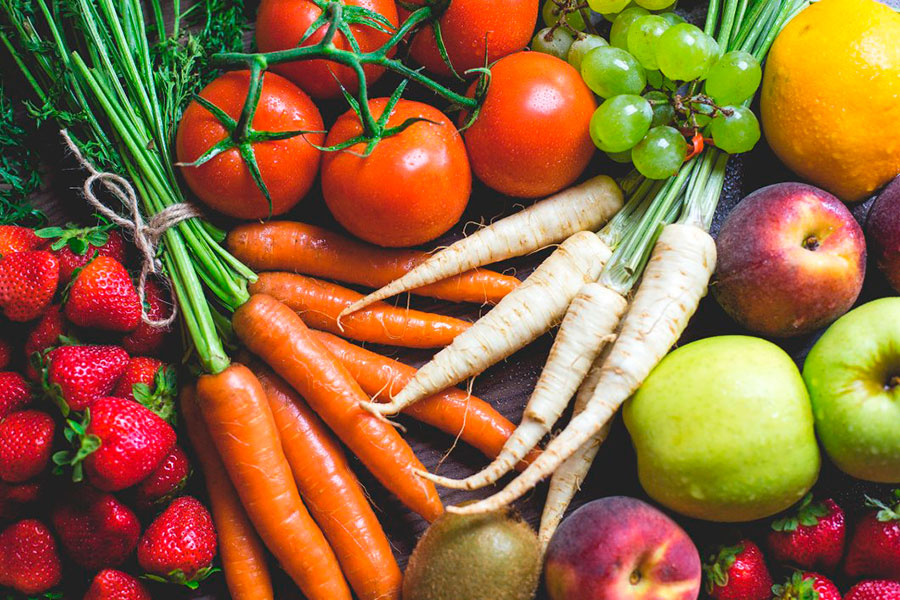Realfooding as a form of healthy nutrition
What is Realfooding? Can it be a way and form of healthy eating?
Realfooding is one of the latest trends that are sweeping the healthy eating sector. It consists of a lifestyle change that focuses on consuming only the healthy and wholesome food that the earth provides, avoiding all those foods that have been treated in food factories with antibiotics, growth hormones, artificial flavourings or enhanced chemicals to make it smell and taste better than it really is.

Why is this actually a healthy way to eat?
Numerous studies have shown that processed foods, which are high in sugar and refined carbohydrates, hydrogenated oils and trans fats, artificial flavours and synthetic chemicals, have addictive properties similar to synthetic drugs, in that they trigger our brain’s pleasure centres, which make us want more and more quantities. Thus, consuming processed foods in large quantities leads to diseases such as obesity, diabetes, digestive disorders, food allergies and intolerances, infertility, high cholesterol and, in some cases, even more serious diseases such as cancer or Alzheimer’s.
Everything we put into our bodies has a direct impact on our overall health, so switching to a nutritious diet and avoiding this type of junk food will make our bodies healthier. In addition, by refusing to consume processed foods, we are also reducing our carbon footprint and helping to protect the environment, as the food industry is highly polluting.
Playing padel allows you to always stay in great physical and mental shape, in the company of close friends and your whole family.
What you can eat
People who practice Realfooding can eat many foods as long as they are not processed. Here is a sample list:
Fresh fruit and vegetables (if possible from the local market)
Fresh dairy products such as milk, sugar-free yoghurt, eggs and cheese
Wheat and other whole grains (not refined)
Brown rice
Dried legumes
Handmade breads and sweets
Homemade pizza and pasta
Seafood (provided it is naturally caught and not farmed)
Locally raised meats
All-natural juices
Coffee and tea (naturally sweetened)
Wine and beer (if they are hand distilled, so much the better)
Snacks such as nuts, seeds, nuts and popcorn
All-natural sweeteners such as honey, maple or agave syrup
Spices (cinnamon, cumin, curry, etc.).
What can’t you eat in real life?
Fast food in any form
Soft drinks or energy drinks
Juices and smoothies that are not natural.
Ready meals of any kind
Crisps, candy or any other snacks
Frozen or tinned fruit and vegetables
Processed meat and fish (nuggets, sausages, crab sticks, etc.)
Rice, cereals and refined flour
Canned foods (except natural and home-canned foods)
Sugar
Artificial sweeteners such as stevia, Splenda, corn syrup, saccharin, etc. Д.
How do I avoid processed foods?
Read the ingredient list
The best indicator of the degree of processed foods we can find in the supermarket is the ingredient list. A good starting point used by those who practice realfooding is that if what you buy contains more than 5 ingredients, and many of them are unknown and/or unpronounceable, it is better to reject it because it is probably not a very natural type of origin. Products that contain a lot of flavour enhancers and chemical preservatives are also thrown away.
Look for organic produce at your local market
Foods that reach small local markets – especially fruit and vegetables – are usually seasonal produce in a region free of pesticides and chemicals, so a little more real produce you’ll find. As for meat and fish, it’s best to look for products from organic farming, as this is usually a guarantee that they have not been processed. Also, opt for organic eggs laid by hens.
Do not buy bread on large surfaces
The white bread they sell in supermarkets is made from refined flour and contains huge amounts of preservatives, while whole wheat bread is partly made from white flour. The solution? Find a reliable artisan bakery in your area to buy real bread.
Buy flour, pasta, and brown rice
Cooking every meal we’re going to eat is a bit unfeasible: for example, every time we want to eat pasta, we can’t make it from scratch, or grind our own grains at home to make flour. But, even if you have to buy processed foods, you can always choose the most real and natural option. In the case of foods such as pasta, cereals, rice and biscuits, you should always choose all options and read the ingredients to make sure they are really only made from wholemeal flour.
Unhealthy foods? Sure, but homemade and at home
Even if we want a healthier diet, we probably can’t completely give up the little treats we give ourselves from time to time, like desserts or junk food. To be able to do it in a real movement, the only condition is to prepare it yourself: homemade pizza, chicken fingers, hamburger with potatoes …. So, although this dish is high-calorie, there will be no risk of over-fattening, because it is unlikely that you will prepare and consume it as often as you do not need to.
